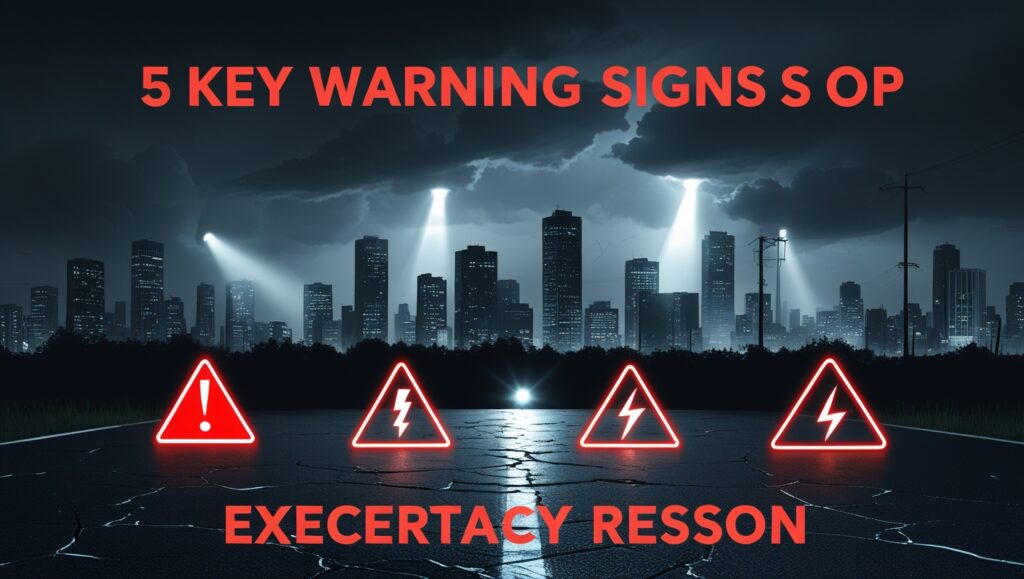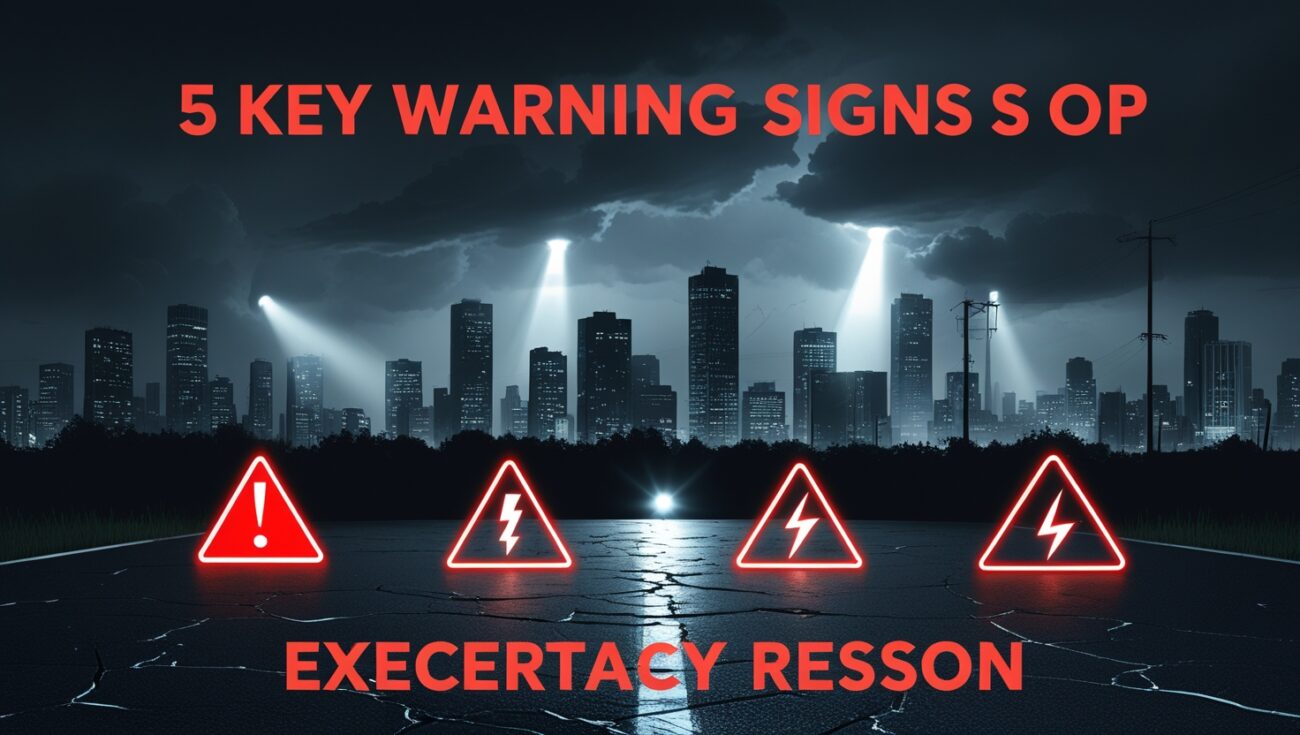5 Reasons Most Power Systems Fail During Real Emergencies
If there’s one thing I’ve learned from multiple blackouts, it’s this: not all backup power systems are created equal. I used to think having a generator or a few solar panels meant I was ready. But when a real emergency hit, I found out—the hard way—that most systems people rely on simply don’t work when it matters most.
Today, I want to break down 5 key reasons why most power systems fail during real-life emergencies—and how you can avoid those mistakes by building something smarter. I’ll also show you the off-grid system I now use that hasn’t let me down once.
Here’s the backup power system I trust.

Table of Contents
1. They Rely on Fuel That Runs Out Fast
Gas generators seem great—until gas stations close, fuel deliveries stop, and you’re out of luck. I learned this the hard way when a major storm shut everything down. I had a $700 generator and no way to power it.
In a true emergency, fuel becomes a scarce, high-demand item. And without it, your generator becomes a very expensive paperweight.
The solution? I built a fuel-free power system that doesn’t rely on gas, diesel, or propane—and it keeps running no matter what.
Here’s the guide I used.
2. They Make Too Much Noise and Attract Attention
During a blackout, quiet can be just as important as power. I didn’t think about this until I heard my neighbor’s generator from three houses away—and realized mine was even louder.
In a real emergency, noise = exposure. The sound of a generator screams, “I’ve got resources!”—and that can attract desperate or even dangerous attention.
My current system? It runs silently. I can power my lights and fridge without the whole block knowing.
3. They Depend on Sunlight or Weather Conditions
I love the idea of solar—but I live in a cloudy region. When a winter storm took down the grid for three days, my solar panels gave me almost nothing. Overcast skies. No power. That’s when I knew I needed a better off-grid solution.
What I use now? It works rain or shine, day or night. No sun required. And it’s way more affordable than any solar package I looked at.
4. They’re Too Complicated to Set Up or Repair
When a system breaks, you need to fix it fast. But most power backups—especially commercial solar or whole-house generators—are so complex you can’t touch them without a technician.
And let’s be honest—in a blackout, you’re not calling anyone.
The system I built from this guide is DIY-friendly, simple to maintain, and built with everyday tools. If something ever goes wrong, I can fix it myself.
5. They Only Power Part of What You Need
You don’t realize how dependent you are on electricity until it’s gone. Most battery backups and cheap generator setups don’t provide enough power to handle even the basics—like a fridge, lights, and phone chargers.
This system gives me sustainable backup energy for my essentials—and it doesn’t drain in a few hours. It’s been reliable every single time I’ve needed it.
My Honest Recommendation (From Experience)
After going through multiple outages, I finally found a solution that works every time:
The Lost SuperGenerator.
It’s quiet, doesn’t use fuel, doesn’t need sunlight, and can be built at home with simple materials. I built mine in a weekend, and now I know—I’ll never be in the dark again.
Don’t Wait for the Next Failure
Most people don’t realize their backup system is flawed until it’s too late. That’s exactly what happened to me. But now, I’ve taken control—and you can too.
Click here to build your reliable, off-grid backup system now.
These Failures Can Be Life-Threatening—Not Just Inconvenient
When people think of power outages, they imagine lighting a few candles and waiting it out. But during real emergencies—blizzards, heatwaves, hurricanes, grid attacks—losing power can be dangerous or even deadly. No heat. No A/C. No way to keep medicine refrigerated. These aren’t minor issues. They’re survival risks.
That’s why I stopped playing with temporary fixes and built something permanent and reliable.
Most People Learn Too Late That Their System Doesn’t Work
I’ve talked to dozens of people who had generators they never tested, solar they didn’t maintain, or battery backups that lasted 4 hours max. When disaster hit? Their system failed, and they were stuck in the dark—scared, cold, and unprepared.
Please don’t be one of those people. I was lucky enough to learn in time.
I Wanted Something I Could Build Without an Electrician
One of my biggest fears was depending on a system I couldn’t fix. What if something broke? What if I needed to expand or move it? Most traditional setups are expensive and complicated—you’re locked into service calls for everything.
This off-grid system was different. I built it with my own hands, and I understand how it works. That means I’m in control, not waiting on anyone else.
There Are No Ongoing Costs or Subscriptions
I was shocked to learn how many “power backup” solutions charge monthly monitoring fees or require expensive maintenance. Even some solar setups have monitoring plans. No thanks.
I built this once, and it runs for free, every single time I need it. There’s nothing else to buy, no monthly bills, and no dependence on anyone.
Most Failures Start With Overconfidence
People think, “I’ve got a generator—I’m fine.” Or, “I’ll just charge my devices in the car.” Until they realize: the fuel runs out, the roads are blocked, or the power doesn’t come back for 3+ days. Overconfidence leaves people vulnerable.
The difference? I built a plan that doesn’t require luck. It just works—because it’s designed to run when everything else fails.
Power Outages Are Increasing Every Year
You don’t have to look far to see what’s happening: extreme weather, energy shortages, cyberattacks, aging infrastructure. The U.S. alone has more blackouts per year than almost any developed country.
And with more devices, more demand, and more stress on the grid—it’s only getting worse.
Silence Is Power (And Safety)
During a blackout, your home becomes vulnerable. When you’re the only one with lights, sound, or power, you stand out—and that can be dangerous. I learned the value of silent backup energy when people started knocking on my door at night during an outage.
This system makes no noise, no smoke, no attention. It’s just you and your power—secure and unnoticed.
Even a Small System Makes a Big Difference
You don’t have to power your whole house. You just need enough to:
- Keep food from spoiling
- Charge communication devices
- Power lights or heat at night
- Stay informed and safe
That alone gives you a massive advantage. That’s what this system gave me—exactly what I needed, when I needed it.
Built With Local Materials—No Supply Chain Delays
One reason I chose this system? I could build it using things from my local hardware store. No waiting weeks for solar panels, no rare parts from overseas. Just simple, affordable components—and easy-to-follow instructions.
In a world where supply chains are falling apart, that’s a huge win.
I Used to Rely on “Luck”—Now I Rely on This
Before I built this, I was always hoping things wouldn’t go wrong. Now, I don’t have to hope—I’ve got a real, tested system in place. That mental shift? It’s priceless. I’m no longer nervous about storms, outages, or grid failures. I’m ready.
You Can Build This in a Weekend
You don’t need to wait months to be protected. With this guide, you can start today, buy your materials tomorrow, and have a working backup power system by Sunday. That’s how fast this process can be if you just commit.
Click here to get the guide I used and build your system this weekend.
Real Emergencies Don’t Give You Time to Prepare
Once the power goes out, it’s too late to get ready. That’s what caught me off guard the first time. Don’t wait for the sirens, alerts, or chaos. Do this now, while you still have time, resources, and internet.
Click here to access the off-grid system before the next blackout hits.

